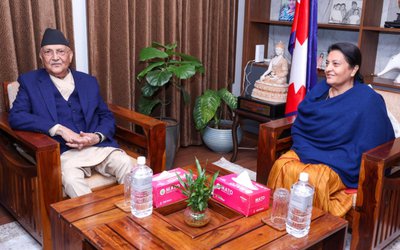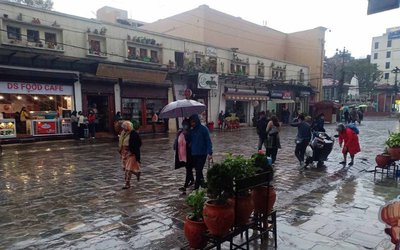
The World Customs Organization is celebrating 2022 with the slogan "Scaling up Customs Digital Transformation". Embracing the data culture and building the data ecosystem can be coordinated to measure the entire digital transformation. "
January 26 is considered International Customs Day. This year, according to the World Customs Organization, the International Customs Day (ICD) on January 26, 2022 will be dedicated to the joint efforts of customs to help people and businesses emerge from the crisis and strengthen the global supply chain. One thing that has become very clear is the importance of global trade and the need to facilitate the flow of goods across borders, especially in areas where they are most needed.
Many countries have taken steps to make the best use of the new model. The challenge of moving forward is how to minimize the impact and, once improved, support strong reforms.
Customs plays an important role. Countries with low costs of bureaucracy and borders have been able to reap this unprecedented benefit; And, never before has there been such a crucial time to implement fundamental reforms that will help both countries in terms of health and security, as well as the economy.
This Customs Day is expected to provide an opportunity to discuss, exchange and develop and implement new and innovative ways of thinking and solutions, as well as development through partnership, if the findings of member nations and nations are mutually agreed upon.
Taking a closer look at the relationship between Nepal and the World Customs Organization, the then Secretary General of the organization visited Nepal in 2012. It is understood that this is the first visit of Mr. KubioMukirio to Nepal since Nepal became a member of the organization on July 22, 1985.
On the occasion, he addressed a special gathering of business, industrial and high-ranking officials and expressed his satisfaction. While reviewing the history of customs, he appreciated the efforts being made for the modernization and improvement of customs in Nepal. On the occasion, he said that the then four-year customs reform and modernization action plan brought by Nepal could be presented as a model in the customs administration of other countries as well. He said that Nepal was moving in the right direction in the field of customs administration through public security and skill management while playing the role of customs for the overall development of industry and commerce.
In the context of Nepal, there is no doubt that business and industry are the basic infrastructure and pillars of the country's economic growth. Because agriculture and tourism have their limits.
Technical research not only provides competitive advantage but also reduces costs, time, and error. Due to which, it has become not only necessary but also mandatory for Nepali engineers and technicians to use the last thought to use technology.
According to this year's slogan conceived by the World Customs Organization, various programs are expected to be made public to fulfill the objectives of Nepal Chamber of Commerce, FNCCI and CNI and Commodity Organizations. In line with the slogan of this year envisaged by the World Customs Organization, various programs are expected to be made public in collaboration with the Federation of Nepalese Chambers of Commerce and Industry, Nepal Chamber of Commerce, Confederation of Nepalese Customs and Ministry of Finance.
In any country, customs plays a major role in the rapid socio-economic development of the country through revenue collection and also in the favorable and equitable facilitation of trade.
The International Customs Day has made it inevitable to take necessary action by adopting search method to collect proper and effective revenue. This is a major part of the customs administration's agenda and will continue for the next few years.
From this, customs plays a big role in the overall economic development of the country by providing necessary health care, law making and crime control, poverty alleviation and environment protection.
There are many opportunities and challenges in the use of new technology in customs administration. Emphasis should be placed on its purchase, proper use, training, etc. Although it is difficult to predict the future of customs, it would not be an exaggeration to say that the future is challenging as change is difficult and challenging. The challenges of the future are revenue collection, trade facilitation and proper implementation of customs rules as well as the need to make maximum changes over time in the interest of the people and the government.
It seems that the government has taken the policy of making the revenue collection system reliable and transparent by making the customs administration of the country efficient. In the current context of globalization, as the dependence on customs revenue is gradually declining, it is necessary to shift the role of customs towards trade facilitation.
Nepal's customs should work in collaboration with the private sector, but not just the digitization of information technology. Since every act of customs, which contributes significantly to revenue mobilization, has a great impact on industry and trade, it is in the interest of the nation, including the entrepreneurs.
Transforming the role of trade facilitation unit at the country's borders, not just as a body to collect customs revenue, World Customs Day emphasizes the implementation of important guidelines, directives and decisions issued by the WTO for trade facilitation and exploratory structural arrangements.
In an import-based economy like Nepal, the effectiveness of customs management not only makes the supply system and revenue more conducive, it is clear that it will take various dimensions of the national economy in a positive direction. Fluctuations in the exchange rate of foreign currency and fluctuations in the international market prices of various commodities are affecting the prices of imported goods. But importers have been hit hard by the customs department's disregard for these facts. Therefore, it should be reviewed from tomorrow.
At present, the customs department does not have a practical and flexible valuation system for realistic valuation of imported goods. As a result, the goods could not be assessed by the customs office considering the important aspects of the international market.
The customs office has been raising controversy over the valuation of imported goods and valuation of clearance. As a result, importers face unnecessary delays, cost overruns due to time cost overruns, truck / container fare increases, and collateral deposits.
The customs department has adopted a policy of recognizing invoices issued by multinational companies. Since the product of a multinational company is accurate and realistic, it is logical to accept the invoice price of a multinational company. Therefore, such price should be accepted by the customs department. But we do not have a common mechanism to find out which company or manufacturer is a multinational company. Therefore, it is necessary to make a list of multinational companies supplying various kinds of goods in Nepal with the participation of customs department, independent experts and private sector.
Representatives of the customs department and related commodities should set certain criteria for evaluating sensitive items for economy (such as soybeans, steel, food grains, industrial raw materials, industrial mill-machinery parts, etc.). From Nepal's perspective, the customs administration established by the state for revenue collection dates back to prehistoric times and Nepal has not remained untouched. A cursory review of history shows that Nepal's trade flourished during the Licchavi and Malla periods, and the customs administration was able to show its existence in a more systematic manner during the Rana period.
Nepal's customs administration should also be in accordance with international treaties and commitments. Nepali customs administration was also active in the lockdown.
Implementing modern risk-based customs procedures balances the need for trade facilitation compliance to ensure that essential goods reach their destination on time and manages the export process remotely and digitally without compromising the health of customs officials and importers, to protect exporters. Countries must work for sustainable economic growth by striking the right balance between compliance and trade facilitation. Processes should be transparent and uniform in implementation.
Using the example of a joint statement issued by the WCO with the International Chamber of Commerce, the customs administration and the private sector need to engage with each other to get a clear view of the challenges.
Some measures will only apply temporarily during an epidemic, should be part of many day-to-day operations, and the use of risk management should be a tool in every customs administration's arsenal. Both risk management systems and risk profiling are key competitors for business facilitation and assurance compliance. This helps the administration to optimize the use of limited customs resources. Digitization has never been more important than it is now. To maintain social distance, customs declaration and electronic declaration of related documents are required. This year, the role of customs is focused on helping the community and the country get out of the Corona crisis. Globalization would not have been possible without tradition. In this sense, customs is of great importance for the simple and easy supply of goods and services we need in our daily lives.
Every fuel we consume and every pinch of salt we bring into our kitchen comes from customs. Supplying any goods or services by evading customs is a legal offense and evading customs goods and services is punishable. Every year on Customs Day, the Ministry of Finance of the Government of Nepal sets a definite objective and discusses whether the objective has been achieved or not. And they also discuss additional difficulties and practices.
May the Government of Nepal succeed in exchanging goods and services from all over the world, and implement meaningful trade agreements for import and export with both China and India. Tribhuvan Airport, the only international airport, should be made more scientific and convenient to facilitate import and export.
The details and calculations of the world's customs audits, which have been simplified and simplified by computer technology to make Nepali customs easier to bind, are still being done in Nepal mostly on old and handwritten paper. This year's World Customs Day is expected to make progress. Let us hope that Nepal will significantly scale up Customs digital transformation.
- Nepal’s recent Economic Growth: Critical observations ?
- Apr 12, 2025
- “Kolahalko Kolaj “: A Collection Of Scattered Memories By Prakash Sayami
- Apr 02, 2025
- Nepal-India Trade, Transit And Unauthorized Trade: Some Considerations
- Jan 16, 2025
- PM Oli’s Forthcoming Visit To China: Will The Achievement Be Complete?
- Nov 29, 2024
- Obituary To Dr. Mohan Man Sainju!
- Nov 02, 2024















